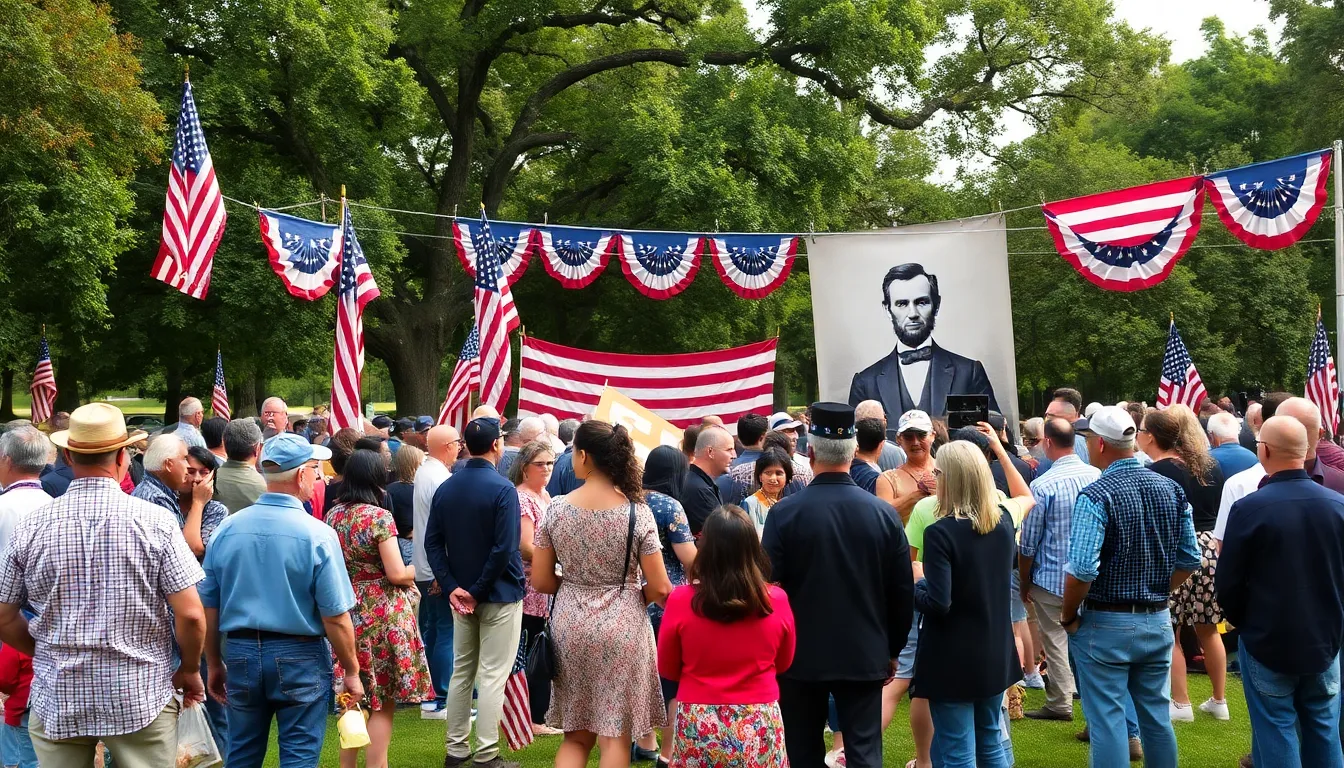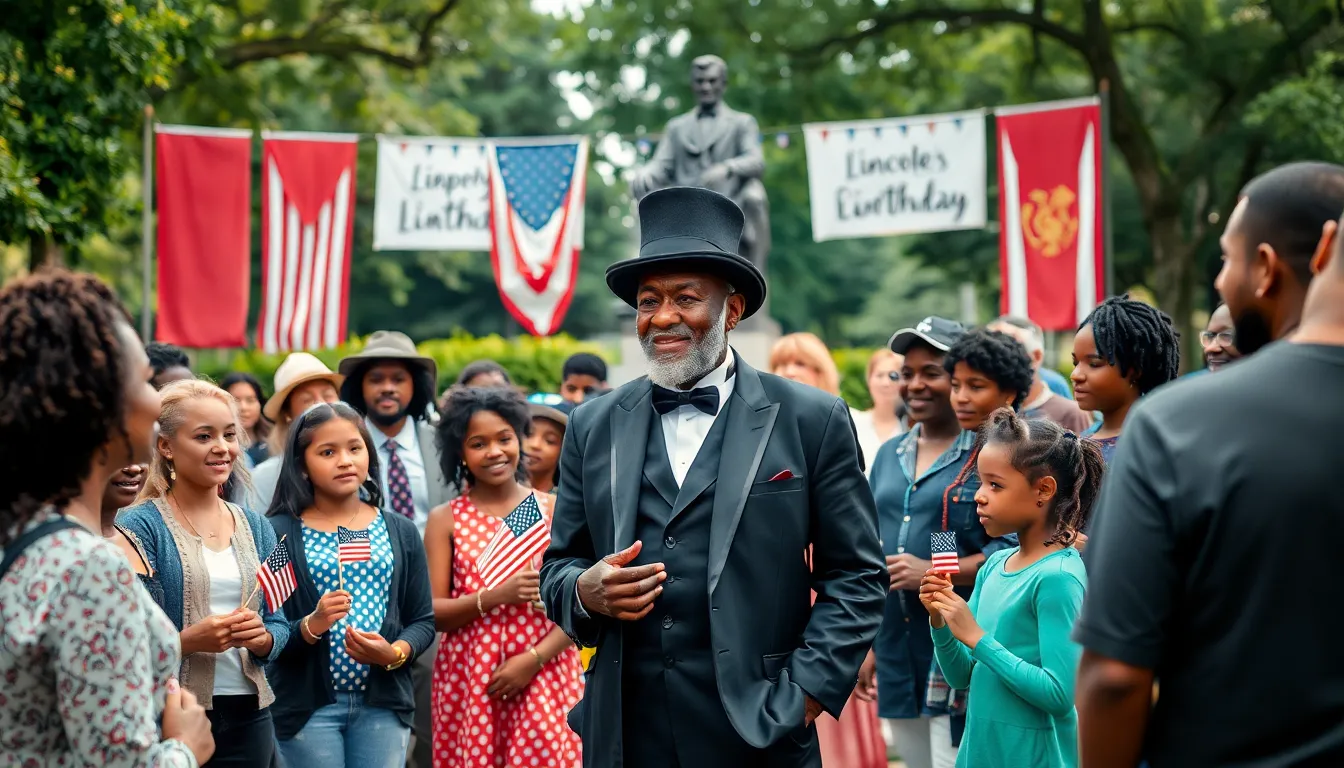Table of Contents
ToggleEvery February, people start scratching their heads over one burning question: is Lincoln’s Birthday a federal holiday? While some might think it’s just another excuse to enjoy a long weekend or indulge in a slice of cake shaped like a log cabin, the truth is a bit more complicated.
Abraham Lincoln, the man who led the nation through its most challenging times, deserves a day of recognition. But does that mean everyone gets a day off work to celebrate with top hats and beards? Spoiler alert: it’s not quite that simple. Dive into the details and discover whether this historic day gets the federal holiday stamp of approval or if it’s just another date on the calendar waiting for a little more love.
Overview of Lincoln’s Birthday
Lincoln’s Birthday, observed on February 12, commemorates the birth of Abraham Lincoln, the 16th President of the United States. Recognition of this significant day varies across the country. Federal recognition as a holiday does not exist. Many states observe the day, but it isn’t universally treated as a day off for workers.
In states like Illinois and California, Lincoln’s Birthday is a paid holiday for state employees. Other regions may celebrate the day with events honoring Lincoln’s contributions to the nation. Schools and local governments often hold special activities, such as educational programs about his life and legacy.
Historical significance highlights Lincoln’s role in preserving the Union and abolishing slavery. His leadership during the Civil War fundamentally shaped American history. Various organizations and communities take this opportunity to appreciate his ideals of liberty and equality.
Despite lacking federal status, many Americans still honor Lincoln’s Birthday. Its observance can vary widely, depending on individual and regional customs. Celebrations might include lectures, reenactments, and community services to reflect on his impact.
Awareness of Lincoln’s Birthday promotes a deeper understanding of American heritage. Engaging in discussions or activities related to this day can foster a sense of community and shared history.
Historical Significance of Lincoln’s Birthday

Lincoln’s Birthday, celebrated on February 12, honors the legacy of Abraham Lincoln, the 16th President of the United States. His leadership during the Civil War set the stage for significant societal changes.
Early Celebrations
Celebrations of Lincoln’s Birthday trace back to the 19th century. Various communities held events to honor his memory, emphasizing his contributions to the nation. In 1909, the first official state holiday recognizing Lincoln’s birthday was established in Illinois, marking the beginning of broader observance. Other states soon followed, integrating festivities into their calendars. These events often included speeches, parades, and educational activities to strengthen public awareness of Lincoln’s values and achievements. Many Americans still participate in similar communal events today, highlighting the historical importance of Lincoln.
National Recognition
Federal recognition eludes Lincoln’s Birthday despite its significant impact. The Uniform Monday Holiday Act of 1971 consolidated federal holidays, placing Presidents’ Day in February instead. Such decision overshadowed Lincoln’s specific day, leading to limited observance at the national level. However, many states continue to celebrate Lincoln’s memory, reflecting local traditions. Notably, states like Illinois and California afford Lincoln’s Birthday the status of a paid holiday for state employees. Conversations around this holiday serve to promote appreciation for Lincoln’s role in American history, despite the absence of federal endorsement.
Federal Holiday Status
Lincoln’s Birthday is not a federal holiday in the United States. Observed on February 12, this day honors the 16th President but lacks national recognition as a paid day off.
Current Regulations
While the federal government does not recognize Lincoln’s Birthday, some regulations exist. The National Archives and Records Administration indicates February 12 remains a normal working day for federal employees. Federal agencies do not close their offices in observance of this date. As such, businesses operating under federal guidelines continue standard operations without interruption. Only a few states honor Lincoln’s legacy with official paid holidays.
Variations by State
States show variation in how they recognize Lincoln’s Birthday. Illinois, where Lincoln spent much of his life, celebrates this day as an official state holiday with closures for state employees. California also observes Lincoln’s Birthday but does not mandate a day off for all workers. Other regions may hold commemorative events, yet none establish it as a statewide holiday. Some local jurisdictions host celebrations, incorporating activities aimed at educating the public about Lincoln’s impact on American history. Each state’s approach demonstrates a unique reflection of local traditions.
Public Observance and Activities
Lincoln’s Birthday prompts various observances nationwide despite lacking federal recognition. The day often inspires educational initiatives and community gatherings aimed at honoring the legacy of Abraham Lincoln.
Educational Programs
Schools and organizations frequently conduct educational programs to explore Lincoln’s impact. These initiatives include lectures, workshops, and interactive displays. Students engage in research projects that highlight Lincoln’s values, such as equality and freedom. Classes might focus on key events during his presidency, like the Emancipation Proclamation. Various programs also involve reenactments or discussions that encourage critical thinking about his contributions to American history.
Community Events
Communities program events that celebrate Lincoln’s legacy and foster unity. Many host parades featuring local groups and historical reenactors. Museums and libraries often offer free admission or special exhibits focused on Lincoln’s life. Citizens participate in volunteer opportunities that emphasize community service, reflecting Lincoln’s values. Some towns coordinate annual events, where individuals gather to discuss and honor his principles through art, music, and storytelling.
Controversies and Discussions
Debates surrounding Lincoln’s Birthday focus on its status and relevance in current society. Critics argue that the omission of federal recognition diminishes Lincoln’s contributions to American history. Advocates for increasing recognition emphasize the need for a unified commemoration.
Relevance in Modern Times
Relevance today stems from Lincoln’s values, which continue to resonate with contemporary issues. Educational programs keep his legacy alive by promoting discussions about equality, justice, and leadership. Communities across the nation host events that reflect on Lincoln’s impact, fostering a sense of unity. Observances often serve to educate younger generations about his role in shaping the nation. Such activities ensure that his ideals remain prominent in public discourse.
Comparisons to Other Holidays
Lincoln’s Birthday often gets compared to other federal holidays, especially Presidents’ Day. Unlike Presidents’ Day, which celebrates all U.S. presidents, Lincoln’s Birthday focuses specifically on an influential figure. Some states where it’s observed provide paid time off, differing from standard federal holiday practices. Independence Day and Thanksgiving also showcase widespread celebrations, while Lincoln’s Birthday tends to receive less national visibility. These comparisons underscore the varied levels of importance assigned to different commemorative days.
Lincoln’s Birthday remains a significant observance despite not being a federal holiday. While many states honor this day with various celebrations and educational initiatives, the lack of universal recognition means it often goes unnoticed on a national scale. Local events and community activities play a vital role in keeping Lincoln’s legacy alive, ensuring that his contributions to American history are remembered and celebrated. As discussions about the relevance of his ideals continue, the importance of recognizing Lincoln’s Birthday may evolve, reflecting the ongoing impact of his values in contemporary society.






